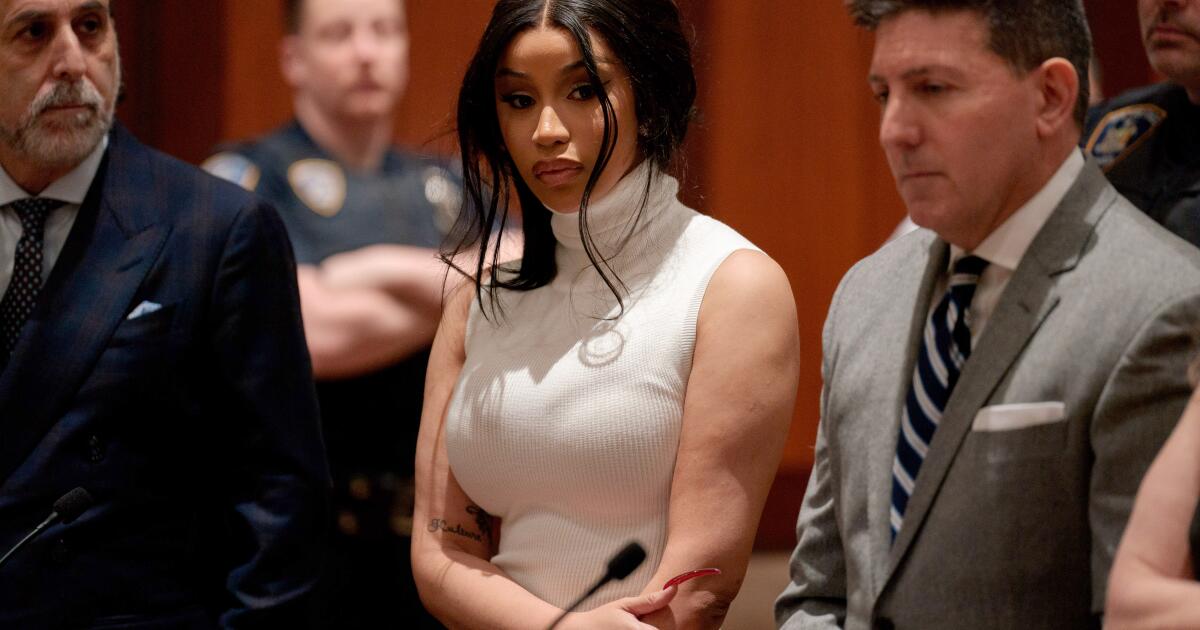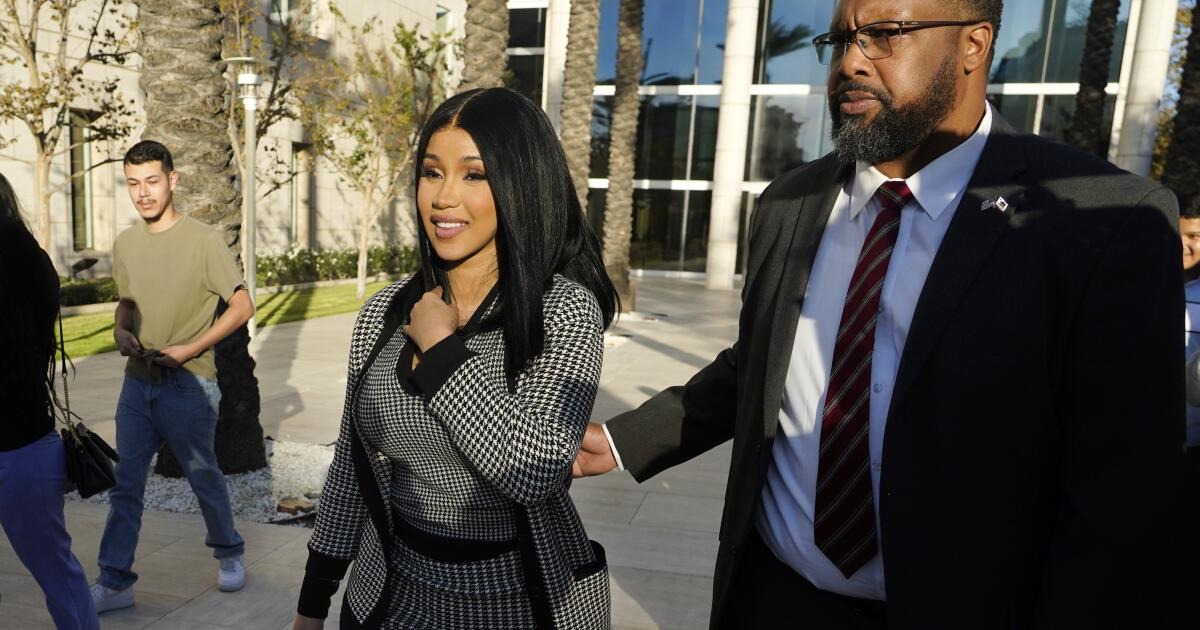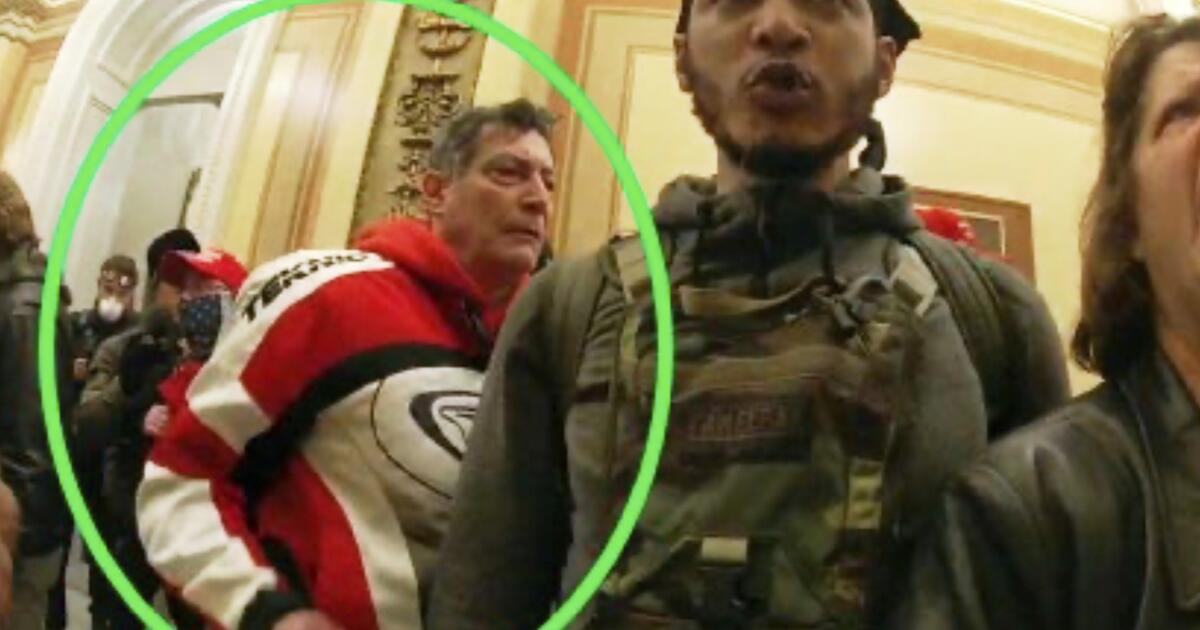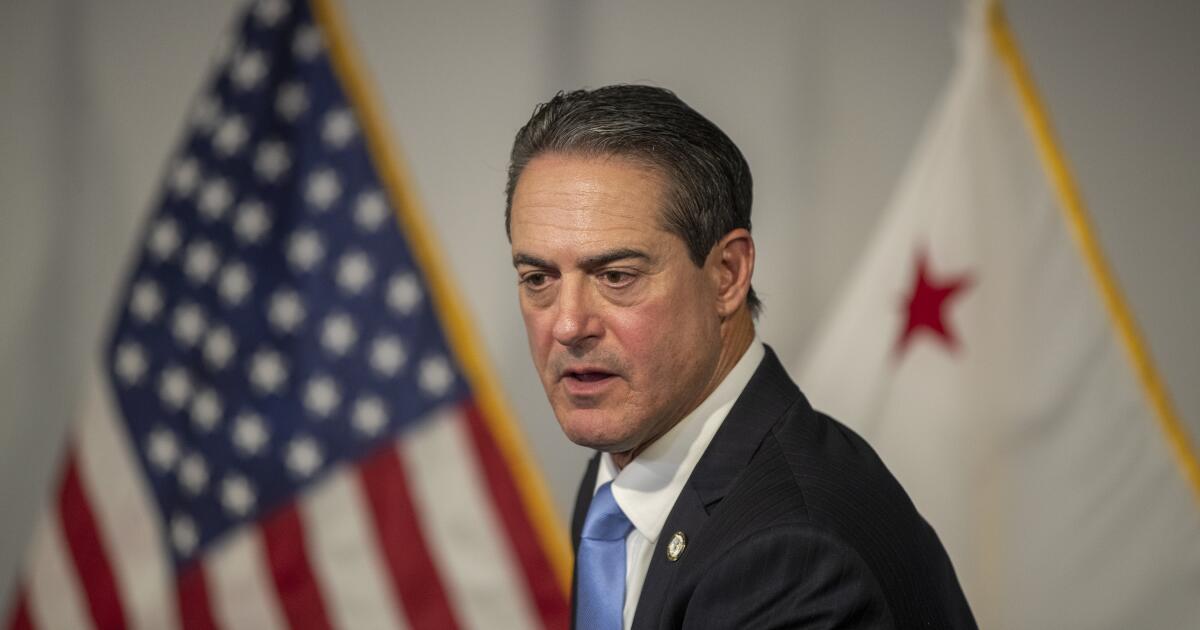Cardi B defense gets boost in $24-million civil trial
Cardi B returned to the witness stand on Wednesday in a civil suit brought by a security guard who alleged that the rapper assaulted her — even scratching her with one of her nail extensions — in a 2018 incident in the hallway outside a Beverly Hills obstetrician’s office.
On Wednesday, the performer blasted the plaintiff, saying she is looking for a payout. Emani Ellis is seeking $24 million. Cardi B said the pair went chest-to-chest and exchanged heated words but nothing more.
Cardi B, whose real name is Belcalis Marlenis Almánzar, reiterated in her testimony that she never touched, scratched or spat at the security guard, who she believed was taking video of her with her cellphone.
Her defense got a boost Wednesday with the testimony of the obstetrician with whom the then-4-months-pregnant rapper had an appointment on the day of the incident — Feb. 24, 2018 — as well as from his receptionist.
Receptionist Tierra Malcolm told jurors that she saw Ellis corner Cardi B — and then, when the receptionist got between them, the guard reached for the rapper. The receptionist said she ended up with a cut on her own forehead.
Dr. David Finke testified that he saw the guard cause that injury and also hit the receptionist’s shoulder. He further said that Ellis had no injuries to her face. Both testified they never saw Cardi B hit Ellis.
But the rapper testified that when a doctor’s staffer asked Ellis that day what had occurred, Ellis said, “The b— just hit me.’ … And I’m, like, so confused because … I didn’t hit you.”
Under cross-examination by Ellis’ attorney, the rapper acknowledged she and Ellis were chest-to-chest as expletives were traded.
Ellis filed suit in 2020, alleging assault, battery and intentional infliction of emotional distress as well as negligence and false imprisonment.
She worked as a security guard at the building where Cardi B had her medical appointment and said during testimony on Monday that she was doing her rounds when she saw the celebrity get off the elevator. She testified that she was overcome with excitement and declared, “Wow, it’s Cardi B.”
Ellis alleged that the performer then turned to her and said, “Why the f— are you telling people you’ve seen me?” Cardi B then accused her of trying to spread news about her being at the doctor’s office, she testified.
Cardi B cursed at her, used the N-word and other slurs, called her names, threatened her job, body-shamed her and mocked her career, Ellis said. She alleged Cardi B spat on her, took a swing at her and scratched her left cheek with a 2- to 3-inch fingernail.
The rapper said during Wednesday’s court proceedings that she’s 5 foot 3 and was 130 pounds and pregnant at the time. She wouldn’t have tried to fight the guard, who was far larger, she said.
Asked if she was “disabled” during the incident, Cardi B’s comments drew laughter in the courtroom: “At that moment, when you’re pregnant, I’m very disabled,” she said with a roll of her eyes. “You want me to tell you the things I can’t do?”
Malcolm said that Cardi B was the lone patient visiting the office that day as it had been closed for her privacy.
When the incident occurred, the receptionist said, “I really just saw Ms. Ellis in front of her and that’s what made me rush and get in between.” Malcolm acknowledged that she did not see the entire interaction between the pair.
When she got between them, Malcolm testified she was facing Ellis, who was reaching with her arms. Malcolm said she suffered a cut to her forehead during the incident.
“Cardi B was behind me. The only assumption I had was that it was from Ms. Ellis as she was facing me,” she testified. “I see her hands trying to reach over me.”
Asked if Cardi B could have caused the injury with one of her nails, she replied, “But she was behind me.” She said it was a nurse who noticed the cut to her forehead.
The doctor said he was “just flabbergasted with the allegations that don’t seem congruent with what i saw that day.”
Following the incident, he said he eventually persuaded Ellis to get on the elevator and leave the floor.
Cardi B testified Wednesday that her social media followers alerted her that the guard had gone online about the incident, where she responded, calling the accusations lies.
The defense ended at the end of Wednesday’s session.
For the third day of the trial, the rapper, known for her daring style choices, donned a long black wig. The first day of the trial, she sported short black hair, followed the next day by a blond showgirl hairstyle.



